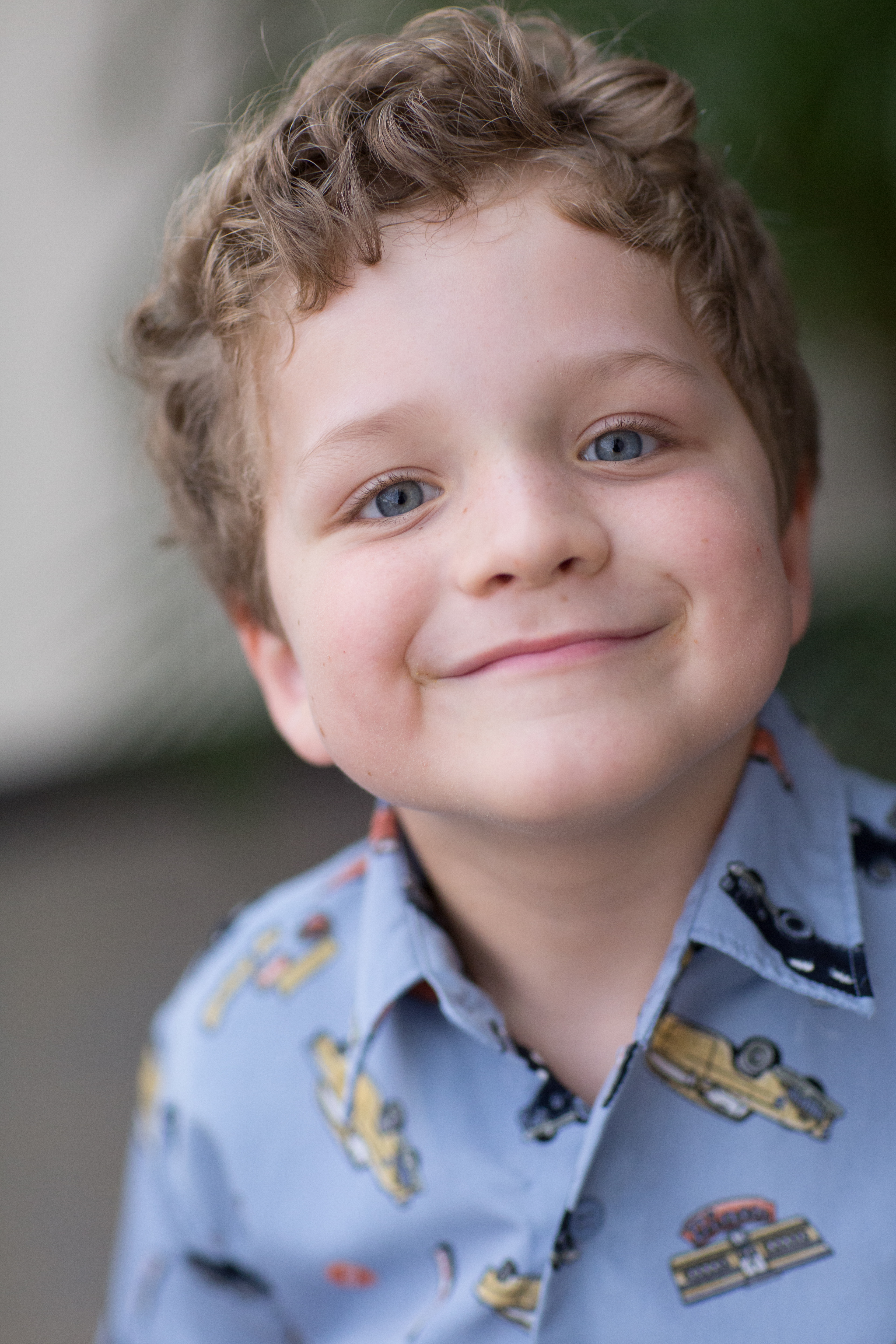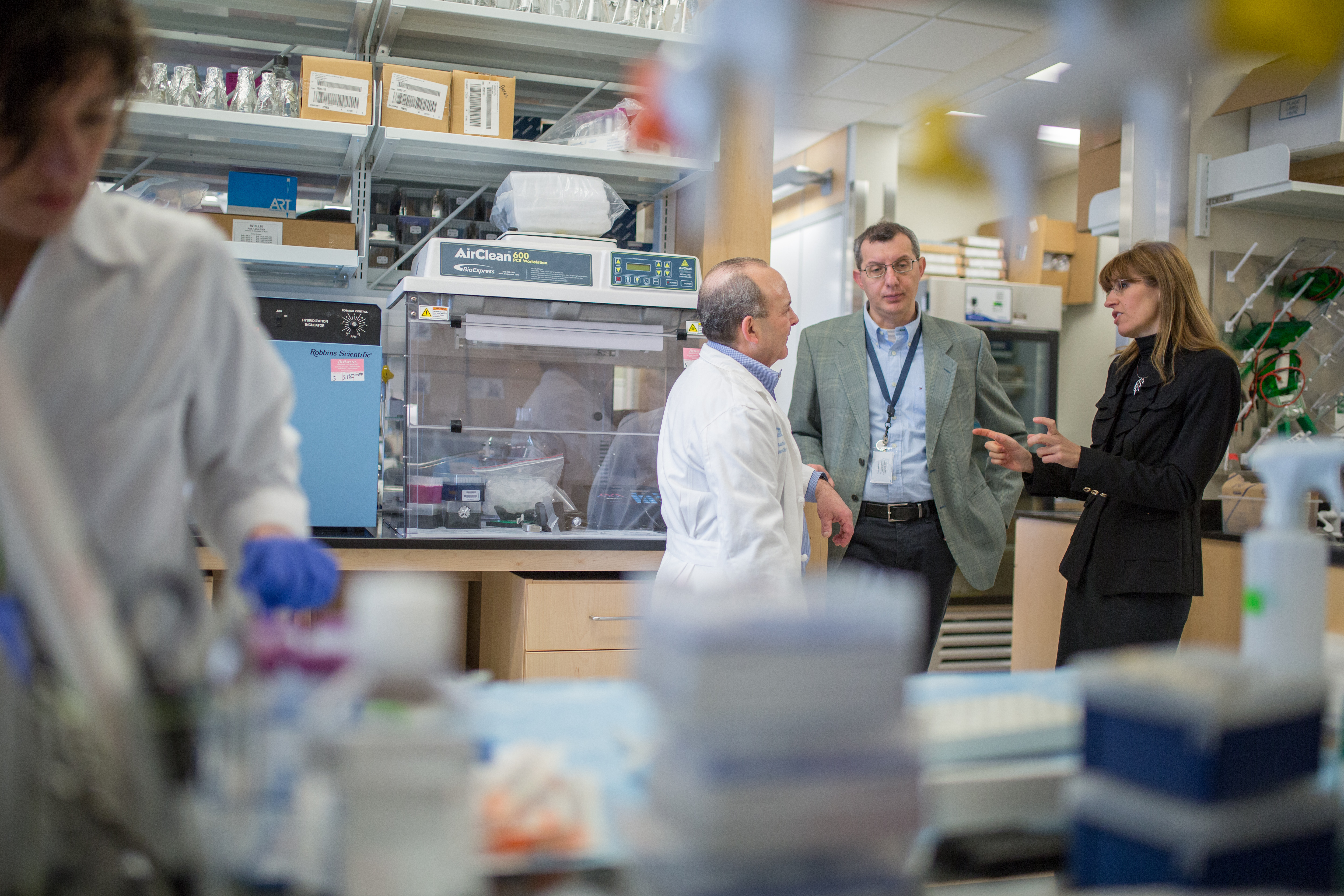UNC Lineberger Comprehensive Cancer Center is bringing a groundbreaking cancer therapy to the people of North Carolina. Known as T-cell immunotherapy, this technique harnesses the power of the immune system to fight a patient’s cancer. This treatment has already saved the lives of many who have not responded well to standard treatment. One of those patients was six-year-old Phineas Sandi.


Less than two years ago, Carlos and Tina Sandi were faced with a fear that was all too familiar – the fear of losing a child to cancer.
Their son, Phineas, was diagnosed with acute lymphoblastic leukemia at age 4. He was their second child to be diagnosed with cancer after their daughter, Althea, was diagnosed six years earlier with another form of leukemia. She died from the disease just after her second birthday.
Faced with this horrific news, the Sandi family sought treatment at UNC under the care of Dr. Philip Roehrs, pediatric oncologist at UNC Lineberger. Within days of his diagnosis, Phineas was undergoing an aggressive chemotherapy treatment for his disease. Unfortunately, the treatments did not work.
“Even after several rounds of chemo, Phineas still had evidence of disease,” said Dr. Roehrs. “In order for Phineas to get to the next stage in his care – to receive a bone marrow transplant – we needed him to be cancer-free, but the standard of care was just not working for him.”
With the chemotherapy not working, Phineas’ care team frantically searched for other options.
Dr. Roehrs began searching for open trials and contacting centers across the country that were testing a groundbreaking form of treatment called T-cell immunotherapy. He finally found one that would take on Phineas – the National Institutes of Health in Maryland. The investigational treatment is designed to use the power of the body’s own immune system to fight cancer with genetically engineered T-cells that recognize and attack the cancer cells.
“We had heard about these experimental trials that used a patient’s immune system to fight the cancer,” said Carlos. “The last thing we wanted to do was leave Chapel Hill and switch care teams, but at that point, it really was his only remaining option.”
Phineas completed the NIH trial and was in full remission within 28 days.
Back at UNC following the trial, Phineas underwent his transplant and came home on Christmas Day, 2013. Today, Phineas is back to doing things a six-year-old should be doing; vacationing in Disney World, meeting new friends in kindergarten and taking a multi-state road trip with his family for spring break.
“The team that cared for Phineas is simply amazing,” said Tina. “There was a tremendous amount of communication between UNC and NIH throughout the trial, and Dr. Roehrs really advocated for our son throughout the entire process.”
Because of amazing medical successes like the story of Phineas, UNC Lineberger is now making this experimental form of immunotherapy available in North Carolina with the launch of a new clinical research program.
“What was once available in only a handful of cancer centers will now be available to patients in North Carolina,” said Jon Serody, MD, associate director of translational science at UNC Lineberger and medical oncologist in the UNC Lineberger Leukemia and Lymphoma Program.
The center has recruited two new faculty members from the Baylor College of Medicine to help launch T-cell therapy clinical trials. Gianpietro Dotti, MD, and Barbara Savoldo, MD, PhD, have been studying these types of trials at Baylor since 1998. The cancer center will initially open a trial for Hodgkin lymphoma, followed by acute lymphoblastic leukemia and additional cancers as the program expands.
Coupled with the launch of these trials is the opening of a new “clean” facility where the T-cells will be developed. Once validated by the FDA, the facility will pave the way for these trials to open in early 2016, along with the addition of two new facility leaders, Facility Director Paul Eldridge, PhD, and Associate Director Kathryn McKay, MS.
“It’s absolutely transformative,” said Carlos. “We are thrilled that immunotherapy is coming to North Carolina, just knowing what we do about the capabilities UNC has, about the wonderful people at UNC, about how much of an impact this institution has, and will continue to have, on the people of our state.”
UNC Lineberger is truly bringing together compassionate care with groundbreaking clinical trials, forever changing the course of treatment for families facing cancer.
“This will give people hope where there used to be no other options,” Tina said. “It could mean that their children get to live, that they will get to see their children grow up instead of planning their funerals. That’s what this really comes down to.”
